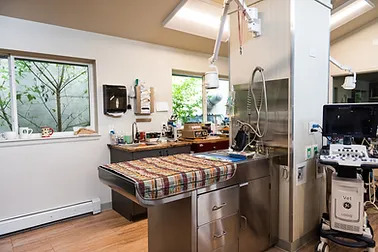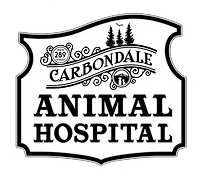 Dental health is an integral aspect of your pet's well being and dental care comes in many forms. Regular monitoring and proper nutrition choices are our first line of defense against dental disease, but most dogs and cats will require one or more in-depth dental procedures in their lifetime. When that time comes, our experienced staff paired with state-of-the-art equipment provide thorough dental cleanings, address oral trauma and perform complicated tooth extractions to help keep your pet to great health.
Dental health is an integral aspect of your pet's well being and dental care comes in many forms. Regular monitoring and proper nutrition choices are our first line of defense against dental disease, but most dogs and cats will require one or more in-depth dental procedures in their lifetime. When that time comes, our experienced staff paired with state-of-the-art equipment provide thorough dental cleanings, address oral trauma and perform complicated tooth extractions to help keep your pet to great health.
